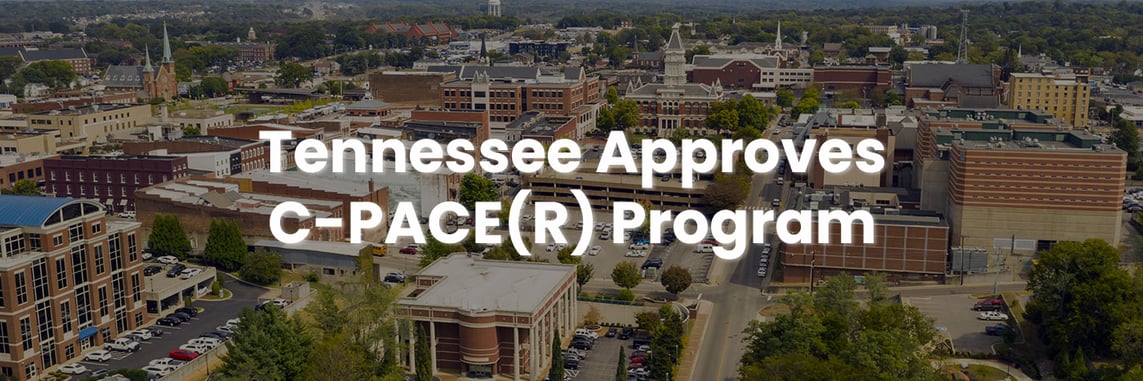
|
|
Program Summary
The below provides an "at-a-glance view" of the Tennessee C-PACER program. For those familiar with C-PACE financing, this will be a clear reference. For those exploring C-PACE, particularly Tennessee property owners, developers, and energy service providers as well as economic development and sustainability focussed organizations, please contact CounterpointeSRE at inquiry@counterpointesre for additional information.
| Tennessee C-PACER program details | A quick view for building owners and developers | |
| New Construction | Yes |
| Lookback / Retroactive C-PACE | Yes, 2 years prior to application |
| Max Term | weighted EUL |
| Max Assessment | 90% of assessed value and 25% of appraised value, exception for low income housing tax credit program |
| Energy Audit / Feasibility Study Required | Yes |
| Lender Consent | Yes |
| Eligible / Qualified Improvements | Energy efficiency, renewable generation, water conservation, safe water, resiliency, modifications (see below for excerpt) |
| Misc | |
Qualified Improvements
Qualified improvement means a permanent improvement installed and affixed to commercial property and intended to: (A) Decrease energy consumption or demand through the use of efficiency technologies, products, or activities that reduce or support the reduction of energy consumption; (B) Support the production of clean, renewable energy, including through the use of a product, device, or interacting group of products or devices on the customer's side of the meter that generates electricity, provides thermal energy, or regulates temperature;(C) Decrease water consumption or demand and address safe drinking water through the use of efficiency technologies, products, or activities that reduce or support the reduction of water consumption; (D) Allow for the reduction or elimination of lead from water that may be used for drinking or cooking; or (E) Increase water or waste water resilience, including through storm retrofits, flood mitigation, and stormwater management, or wind resistance, energy storage, microgrids, and other resilience projects approved by the local government; 14(b) A local government shall not impose an assessment to repay the financing of the purchase or installation of products or devices not permanently affixed to commercial property.
Why Resiliency
PACE legislation has long been based on the recognition of energy-saving and renewable energy improvements as serving a public good. Programs such as those found in California, Florida and Texas have added resiliency measures to enhance and protect commercial buildings and the communities and businesses they serve. In California, for example, seismic resiliency is included in eligible measures, while storm resiliency is eligible in Florida and Texas.







